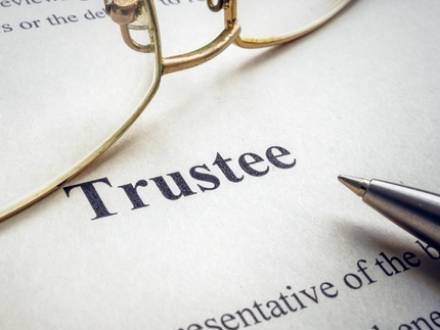Recent Blog Posts
When Can a Trustee Be Removed?
 In the process of estate planning, the trustee is the person appointed to distribute the funds in a trust to its beneficiaries. As long as the trustee does what is expected of him or her, the distribution of assets usually goes smoothly. However, when a trustee does not meet the standards of the role, you may have to take legal action to have him or her removed. A San Antonio, TX estate litigation attorney can help you protect the assets in your trust and initiate removal proceedings.
In the process of estate planning, the trustee is the person appointed to distribute the funds in a trust to its beneficiaries. As long as the trustee does what is expected of him or her, the distribution of assets usually goes smoothly. However, when a trustee does not meet the standards of the role, you may have to take legal action to have him or her removed. A San Antonio, TX estate litigation attorney can help you protect the assets in your trust and initiate removal proceedings.
If you suspect that the funds in your trust are being mishandled, Geoff Mayfield, Attorney at Law can help. Our firm can identify breaches of fiduciary duty and request the appointment of a new trustee.
Removing a Trustee Due to Mismanaged Funds
Trustees are expected to competently manage the funds within a trust. This is understood to mean that the trustee will not take any undue risks with the assets. However, if a trustee makes poor decisions with the funds, it could amount to thousands of dollars or more in damages. Mismanagement of a trust might involve wrongly distributed assets, late payments, or embezzling assets. According to Texas law, a trustee may be removed if, due to the trustee’s actions, the trust suffers a "material financial loss."
Getting Through a Partner Dispute in Your Business
 The fate of a business can be jeopardized by a dispute between two partners. If you have reached an impasse with a business partner that you cannot resolve on your own, it may be time to seek legal representation. By working with a skilled Comal County, TX business law attorney, you can protect your interests and do what is best for your business.
The fate of a business can be jeopardized by a dispute between two partners. If you have reached an impasse with a business partner that you cannot resolve on your own, it may be time to seek legal representation. By working with a skilled Comal County, TX business law attorney, you can protect your interests and do what is best for your business.
When you work with Geoff Mayfield, Attorney at Law, you will benefit from our firm’s vast breadth of experience and legal knowledge. We can provide you with aggressive representation and counsel for different partnership disputes, advising you of your best course of action. We will consider all possible avenues to resolve the dispute amicably, and if needed, we are willing to advocate for you in a trial.
Addressing Breaches of Fiduciary Duty by a Business Partner
Business partners are bound by a fiduciary duty – meaning that they must make decisions in the best interest of the business. If your business partner fails to honor this duty, you may have to take legal action to rectify the situation. Common breaches of fiduciary include:
What Should a Residential Lease Include?
 Having a tenant move into a residential property can be an exciting business venture, and behind every fruitful renting agreement is a well-written lease. Drafting a lease on your own can be tempting but can lead to unnecessary mistakes and expensive costs. With the help of a Wilson County, TX real estate attorney, you can make sure that your best interests are protected.
Having a tenant move into a residential property can be an exciting business venture, and behind every fruitful renting agreement is a well-written lease. Drafting a lease on your own can be tempting but can lead to unnecessary mistakes and expensive costs. With the help of a Wilson County, TX real estate attorney, you can make sure that your best interests are protected.
At Geoff Mayfield, Attorney at Law, we have extensive experience assisting landlords with legal concerns. Our residential real estate lawyer can draft or review your lease to help minimize your risk. We will make sure that your lease clearly outlines the rights and responsibilities of both parties.
Handling Payment Terms and Methods in a Tenant Lease Agreement
As a landlord, getting rent on time is one of your top priorities. With this in mind, your lease should state when rent is due every month. Some landlords include a "grace period" after the due date where a tenant will not be penalized for a late payment.
The Importance of Making an Estate Plan
 It is fair to say that most people do not look forward to estate planning. It can be a heavy subject to come to grips with as you get older, and feelings of unease are natural. However, taking the effort to make a plan for your estate can provide you with long-term comfort and certainty. For that reason, working with a San Antonio, TX estate planning attorney is highly advisable.
It is fair to say that most people do not look forward to estate planning. It can be a heavy subject to come to grips with as you get older, and feelings of unease are natural. However, taking the effort to make a plan for your estate can provide you with long-term comfort and certainty. For that reason, working with a San Antonio, TX estate planning attorney is highly advisable.
Geoff Mayfield, Attorney at Law is here to guide you through the sensitive process of estate planning, taking the time to understand your priorities and goals. Our firm can help look out for your own interests, as well as your beneficiaries’, with strong counsel.
Why You Need to Set Up an Advance Medical Directive
If you fall ill and become unable to communicate your wishes, the responsibility may fall to the people around you to interpret how you should be treated. However, with careful estate planning, you can dictate your exact wishes if you become incapacitated. The purpose of an advance medical directive is to clarify your preferences to doctors if you cannot speak for yourself. It is also a legally binding document, meaning that it must be respected.
Common Reasons Wills Are Contested in Probate Court
 When someone dies, his or her assets will go through the process of probate, which involves distributing property to beneficiaries in court. If someone has written a will before passing on, all of the estate’s property will be distributed according to the instructions in the will. A person who writes a will is called a "testator."
When someone dies, his or her assets will go through the process of probate, which involves distributing property to beneficiaries in court. If someone has written a will before passing on, all of the estate’s property will be distributed according to the instructions in the will. A person who writes a will is called a "testator."
Writing a will generally makes managing an estate easier for all parties, especially the executor of the estate. However, a will can still be challenged, leading to legal disputes. Whether you are writing a will yourself, or you are responsible for somebody else’s estate, it can be helpful to know the common reasons why wills end up disputed in probate court. A Texas probate attorney at Geoff Mayfield, Attorney at Law can help you avoid pitfalls and mediate conflicts as needed.
Do I Need a Business Contract for My Company?
 Whether you are starting a new business venture or taking on a new employee, it can be tempting to skip the paperwork and forge ahead. However, there are several good reasons to write up a business contract with a new partner or employee. A Texas small business attorney can help you draft a contract to protect your company’s interests in the long term.
Whether you are starting a new business venture or taking on a new employee, it can be tempting to skip the paperwork and forge ahead. However, there are several good reasons to write up a business contract with a new partner or employee. A Texas small business attorney can help you draft a contract to protect your company’s interests in the long term.
Attorney Geoff Mayfield has the legal knowledge and experience to help you write different kinds of business contracts. At Geoff Mayfield, Attorney at Law, we offer general counsel and representation to help you meet your small business needs.
The Benefits of a Non-Disclosure Agreement
If you need to protect certain trade secrets, you could consider drafting a non-disclosure agreement (NDA) with your employee or business partner. These written agreements are intended to prevent another party from going public with certain information. This could be used to protect a recipe, blueprint, or anything else that gives your business a competitive edge.
Common Title Issues in Real Estate
 Buying a new real estate property is an exciting opportunity. However, issues with the title to the property can turn a simple purchase agreement into a much more complicated affair. To avoid wasting your time and money, you can work with a Texas real estate attorney to resolve outstanding title issues.
Buying a new real estate property is an exciting opportunity. However, issues with the title to the property can turn a simple purchase agreement into a much more complicated affair. To avoid wasting your time and money, you can work with a Texas real estate attorney to resolve outstanding title issues.
Having a knowledgeable legal advocate at your side is paramount for protecting your rights. At Geoff Mayfield, Attorney at Law, we have more than 15 years of experience representing clients in real estate transactions, so you can take comfort knowing that your case will be handled by an accomplished attorney. Our firm can take legal action to facilitate the purchase of a real estate property.
Who Owns the Property?
The question of ownership over a property can be more complicated than it initially appears. In most cases, you would assume that the person who bought the property is the sole owner – and in most cases, you would be right. However, defects in the title can muddle ownership rights.
Should I Set Up a Trust in Texas?
 If you worry about what will happen to your estate after your death, you might find it eases your worries to make thorough preparations. One step you might take is setting up a trust for your beneficiaries. When combined with a well-written will, a trust can be a powerful tool in its own right. With assistance from a Texas estate planning attorney, you can set up a living trust according to your specifications.
If you worry about what will happen to your estate after your death, you might find it eases your worries to make thorough preparations. One step you might take is setting up a trust for your beneficiaries. When combined with a well-written will, a trust can be a powerful tool in its own right. With assistance from a Texas estate planning attorney, you can set up a living trust according to your specifications.
There are numerous benefits to setting up a trust in your lifetime, particularly when it comes to protecting your property. At Geoff Mayfield, Attorney at Law, we can guide you through the process of establishing a trust, helping you steer clear of risks and liabilities.
Can I Avoid Probate Through a Living Trust?
A living trust can be used to exclude certain property from the probate court. After your passing, all of your assets and property will go through probate court to be divided up among your beneficiaries. Even if you designate who will receive your assets in your will, disputes can still arise between your beneficiaries.
Why Is Probate Court So Complicated?
 Few people look forward to the process of probate after a loved one passes on. Going through the deceased’s assets and dividing them up can be a tedious but necessary endeavor. Oftentimes, estate administrators and beneficiaries are unprepared for just how complex probate can be. A Texas probate attorney can provide invaluable assistance during this process, lending skilled representation and counsel.
Few people look forward to the process of probate after a loved one passes on. Going through the deceased’s assets and dividing them up can be a tedious but necessary endeavor. Oftentimes, estate administrators and beneficiaries are unprepared for just how complex probate can be. A Texas probate attorney can provide invaluable assistance during this process, lending skilled representation and counsel.
At Geoff Mayfield, Attorney at Law, we offer highly personalized legal services to help you get to the bottom of probate administration. Together, we can address the various complications that come with dividing up a decedent’s estate, whether you are an administrator or a beneficiary.
How Are Assets Accounted For?
If you are appointed as the administrator of the estate, you will be responsible for dividing up the deceased person’s property. This means that you will have to get a full inventory of the decedent’s assets. This includes personal belongings, real estate holdings, and investments. You will also have to uncover the decedent’s liabilities, which may include unpaid debts or loans.
Three Ways General Counsel From a Lawyer Can Help Your Business
 As a small business owner, keeping your daily operations running smoothly might take up all of your attention. With your resources spread thin, it may be difficult to keep track of the legal issues facing your business. However, do not feel as though you have to manage everything by yourself. A Texas small business attorney can help you tackle these problems as they come, looking out for your best interests.
As a small business owner, keeping your daily operations running smoothly might take up all of your attention. With your resources spread thin, it may be difficult to keep track of the legal issues facing your business. However, do not feel as though you have to manage everything by yourself. A Texas small business attorney can help you tackle these problems as they come, looking out for your best interests.
If you need general counsel from a skilled business attorney, Geoff Mayfield, Attorney at Law is here to help. Our firm can provide you with legal advice and oversight for your specific needs.
General Counsel is Cost Efficient
Larger companies and corporations often have the financial resources to keep an attorney on staff. However, this option may not be feasible for small business owners who can only take on a limited number of employees. Moreover, if you are not dealing with legal issues on a regular basis, it can be hard to justify putting a full-time attorney on your payroll.

 8531 N. New Braunfels Ave, Suite 100, San Antonio, TX 78217
8531 N. New Braunfels Ave, Suite 100, San Antonio, TX 78217 210-535-0870
210-535-0870




